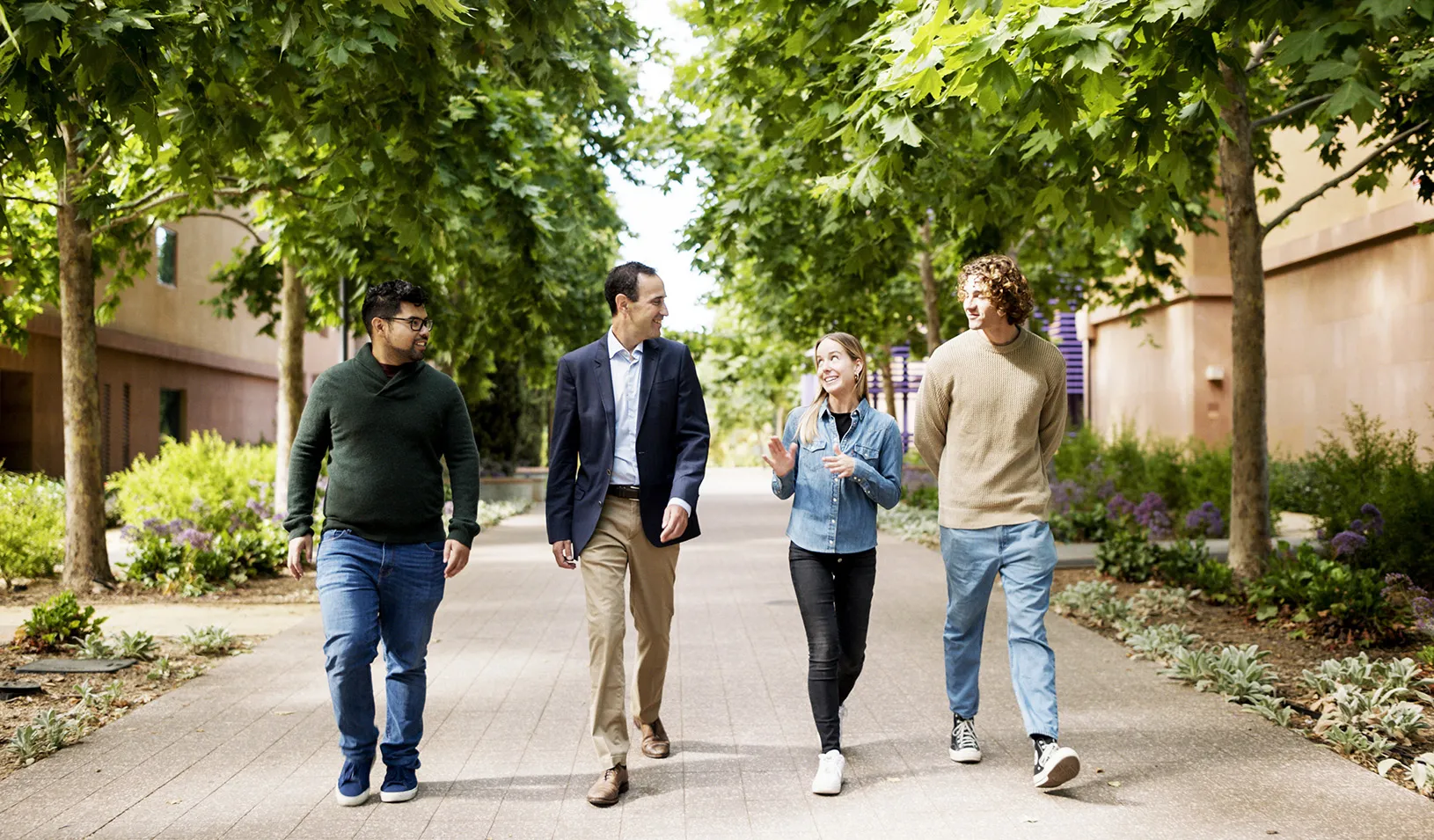West Africa Visit Yields New Perspectives for Stanford GSB Professors
Participants get an on-the-ground view of businesses and the impact of the Stanford Seed Transformation Program during a 2017 faculty study trip.
May 15, 2017
Faculty members visited the fishing village of Elmina to learn about the culture and history of Ghana. They toured Cape Coast Castle and Elmina Castle, large forts whose dungeons imprisoned slaves during the years of the trans-Atlantic slave trade. | Liz Walker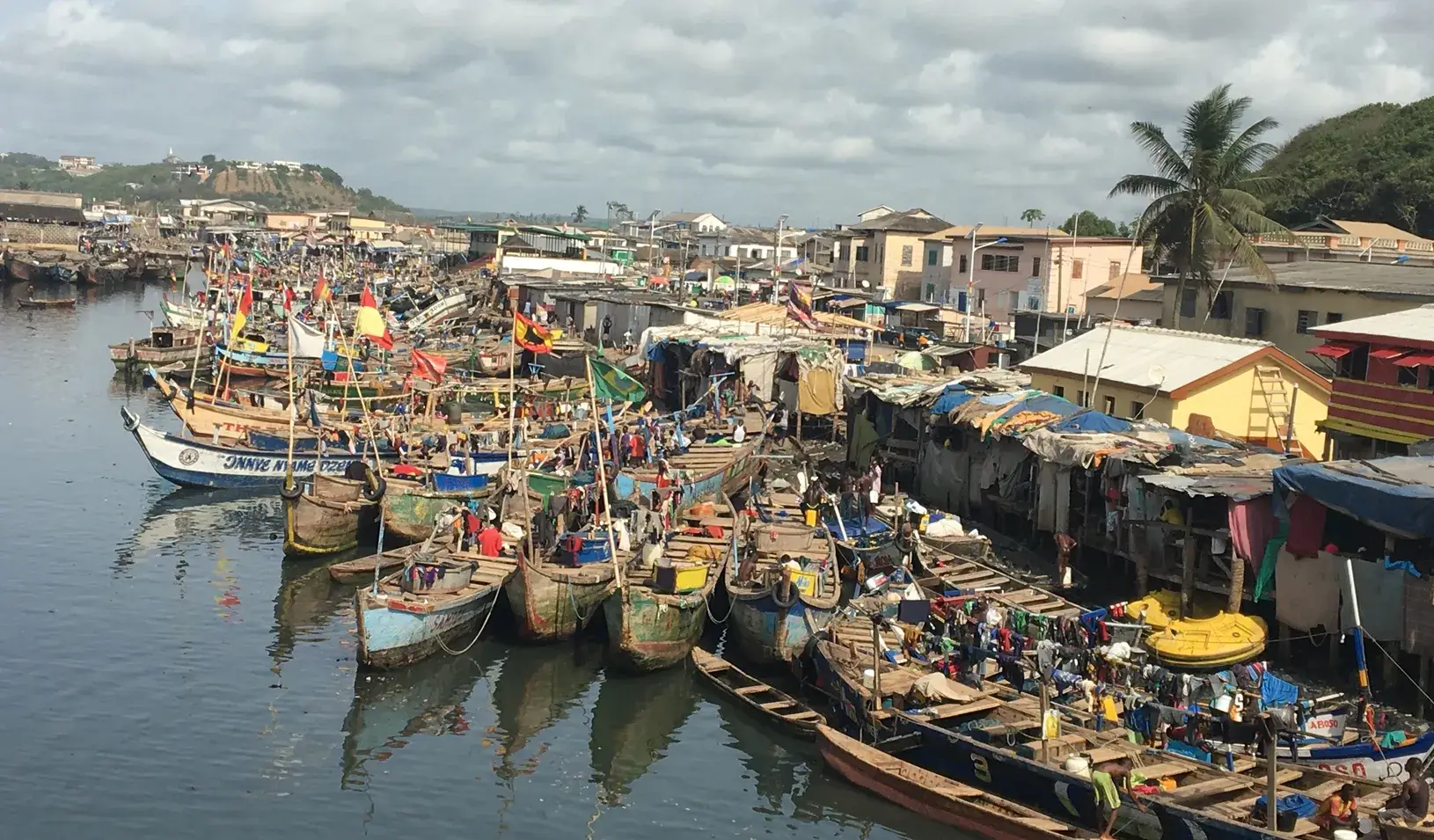
Nine professors from Stanford Graduate School of Business visited West Africa this spring, meeting with business leaders, entrepreneurs, economists, Stanford GSB alumni, and Stanford Seed Transformation Program participants.
They pulled on hard hats to visit construction sites; donned hairnets to tour food processing factories; sat down with Africa’s most successful businessman, Aliko Dangote; and met startup founders who took part in the Seed Transformation Program — an immersive management-training program — in Ghana and Nigeria.
Faculty study trips provide Stanford researchers with intellectual and personal experiences in parts of the world that are essential to the global economy, and spark interest in future research opportunities.
In December, another group of faculty members will head to India; they will have the opportunity to visit Seed’s newest center in Chennai. Previous trip destinations include Brazil, Chile, China, India, Indonesia, Israel, Russia, South Africa, Turkey, and Vietnam.
The professors toured the Elssy Kess Co. factory in Greater Accra, Ghana. Founded by CEO Elsie Dogbegah, another past participant in the Seed Transformation Program, the natural foods company sells vegetables, cereals, snacks, flour, and oils. Workers were packaging palm oil, which is used similarly to sunflower oil to prepare meals. | Liz Walker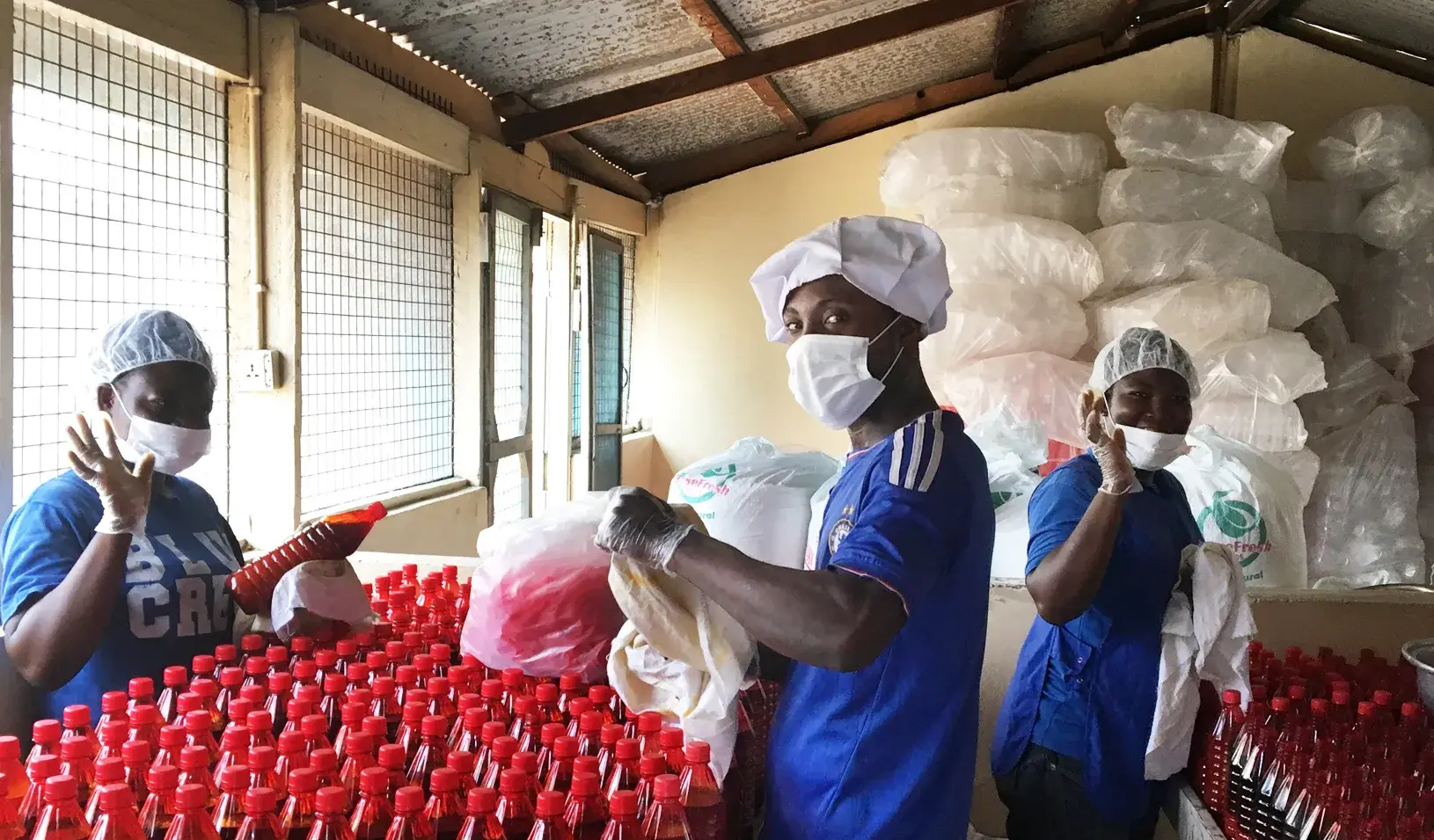
Another worker at Dogbegah’s factory packaged corn dough. About 80 percent of the company’s employees are women. | Liz Walker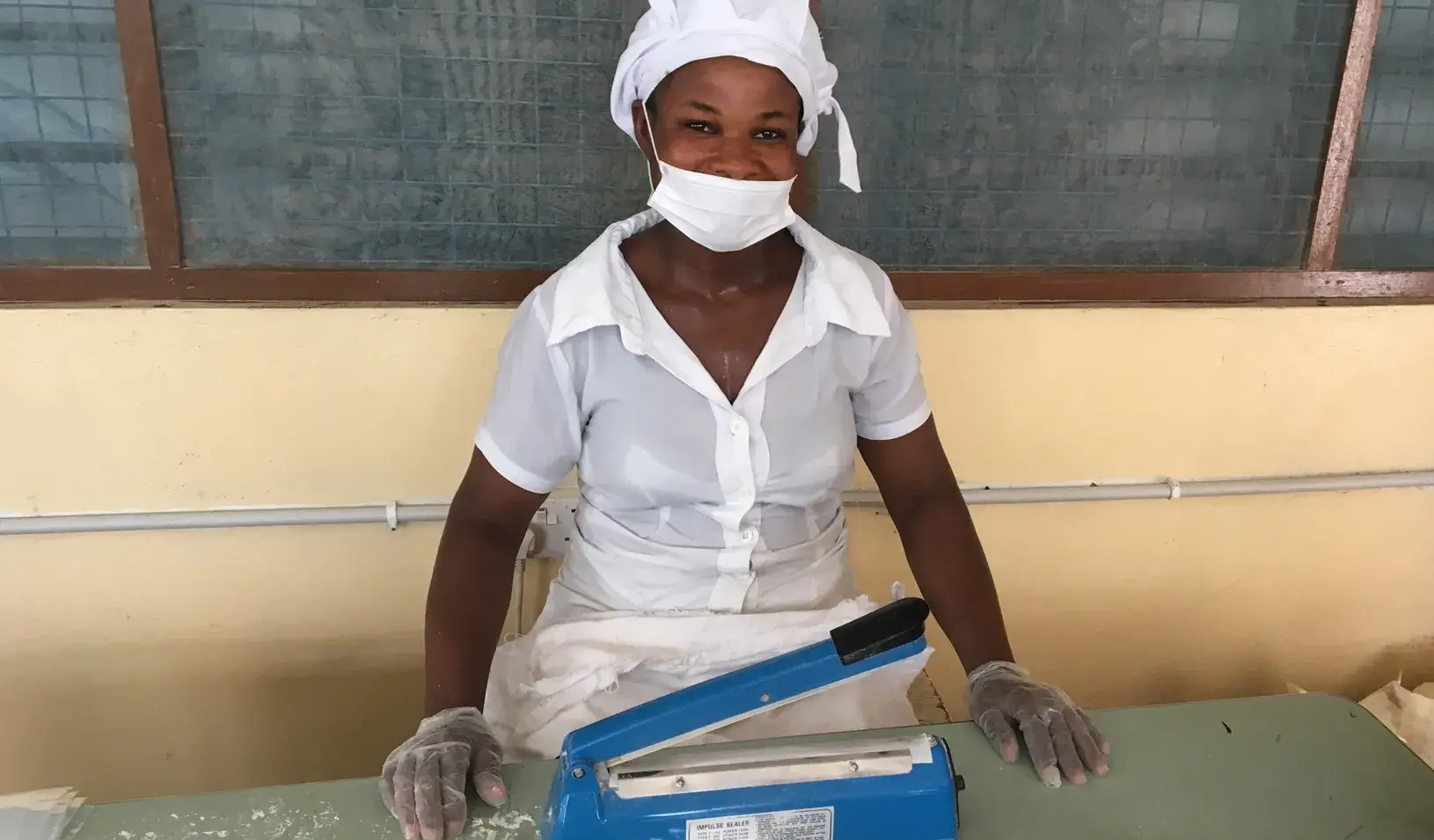
These students are part of Tech Needs Girls, a mentorship program started by Ghanaian social entrepreneur Regina Honu and run through her software development company, Soronko Solutions. Tech Needs Girls teaches girls from 6 to 18 how to code. So far, more than 3,500 young women have gone through the program. | Liz Walker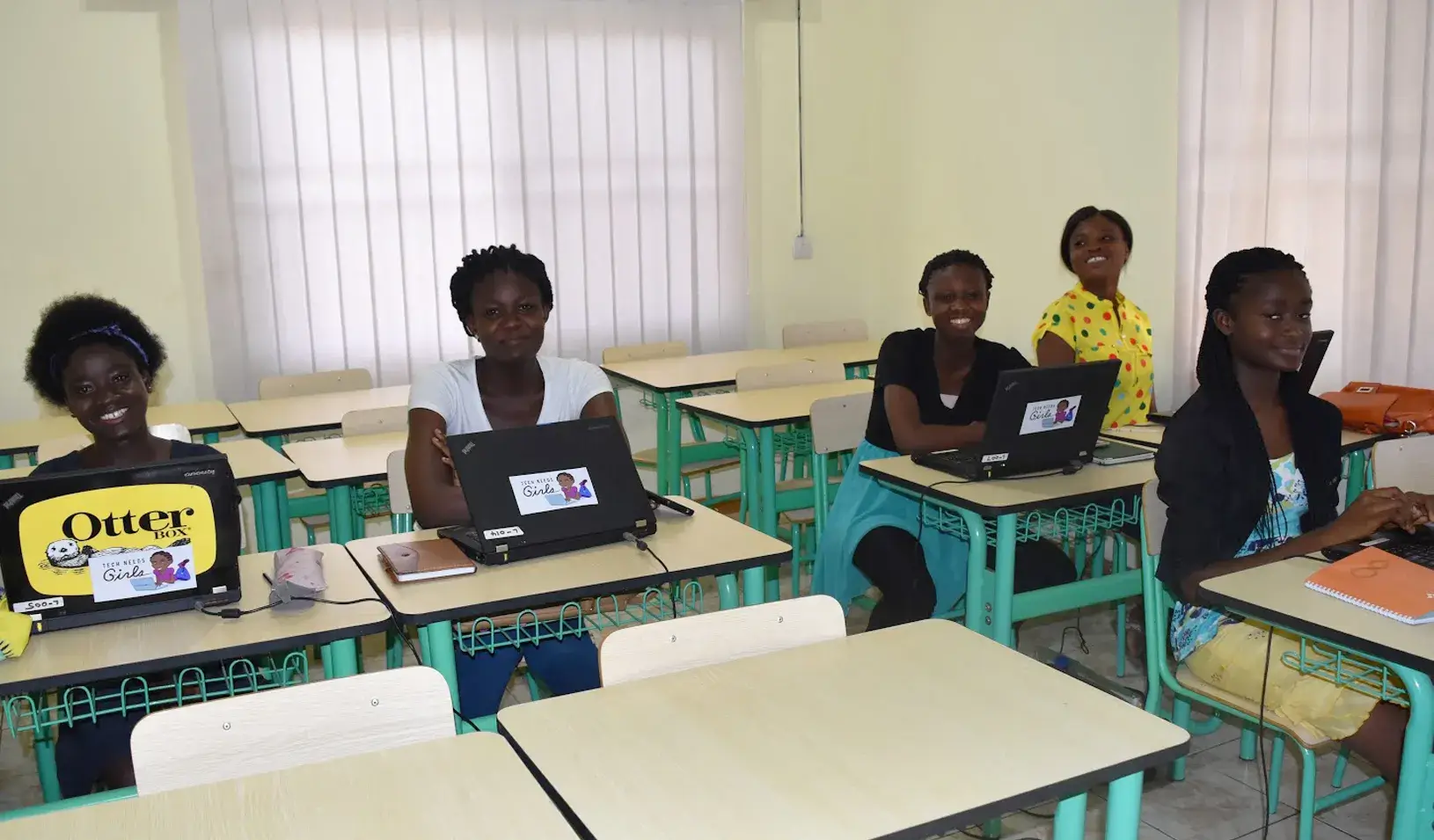
In Lagos, Nigeria, the faculty members — including Kathryn Shaw, center — met Richard Olatunde Fadiora, CEO of Richard’s Court. Fadiora’s company builds multifamily housing for Lagos’ middle class. | Liz Walker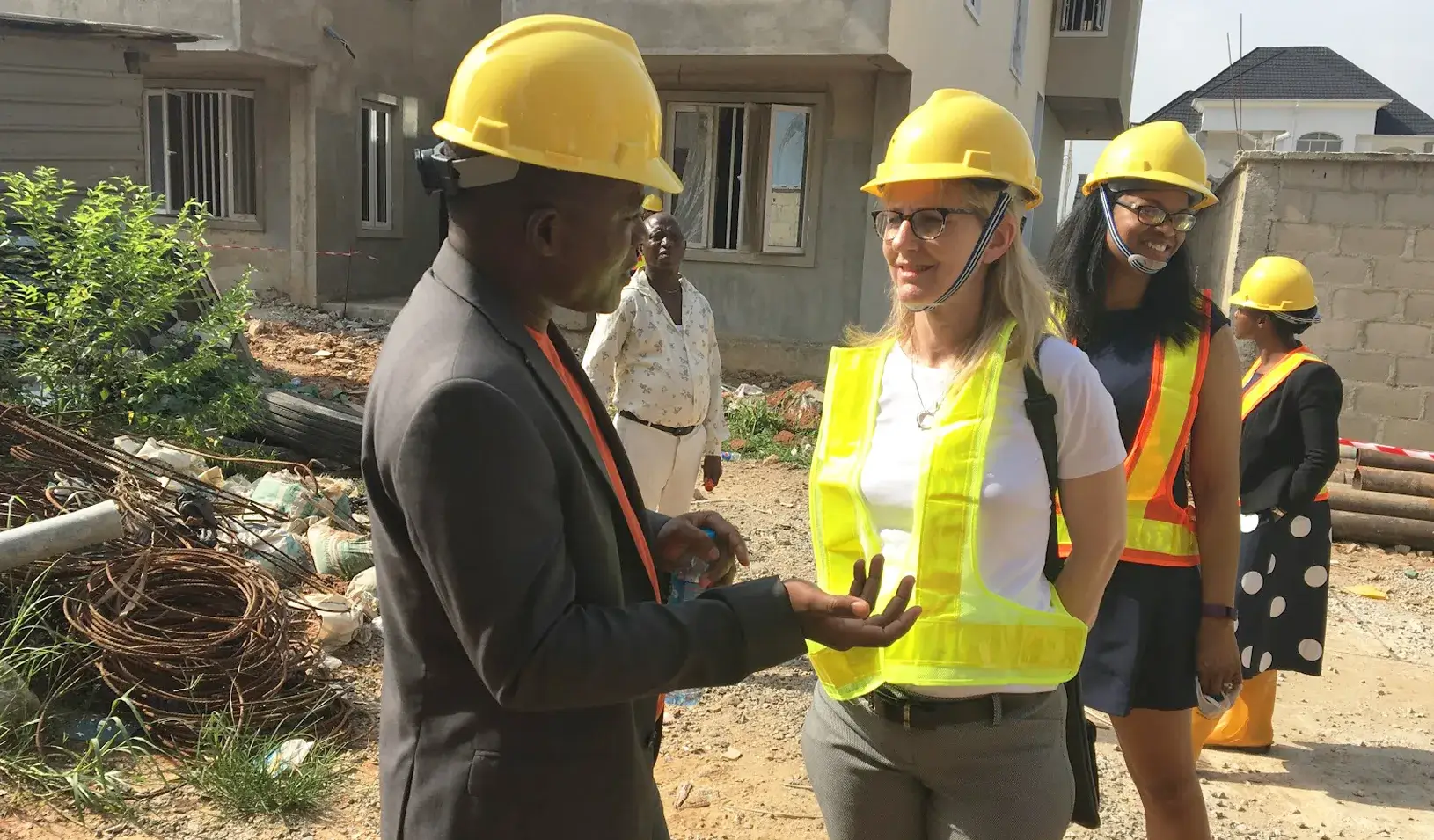
Faculty members toured the facilities at Praise Export Services, run by CEO Godwin Adordie, a past participant in the Seed Transformation Program. His Ghanaian food processing company was launched in 1994 with three people, exporting local items like fresh yams and gari (grated, fermented cassava tubers). Now it has 110 employees and exports a variety of foods to the U.S., Canada, and Europe. | Liz Walker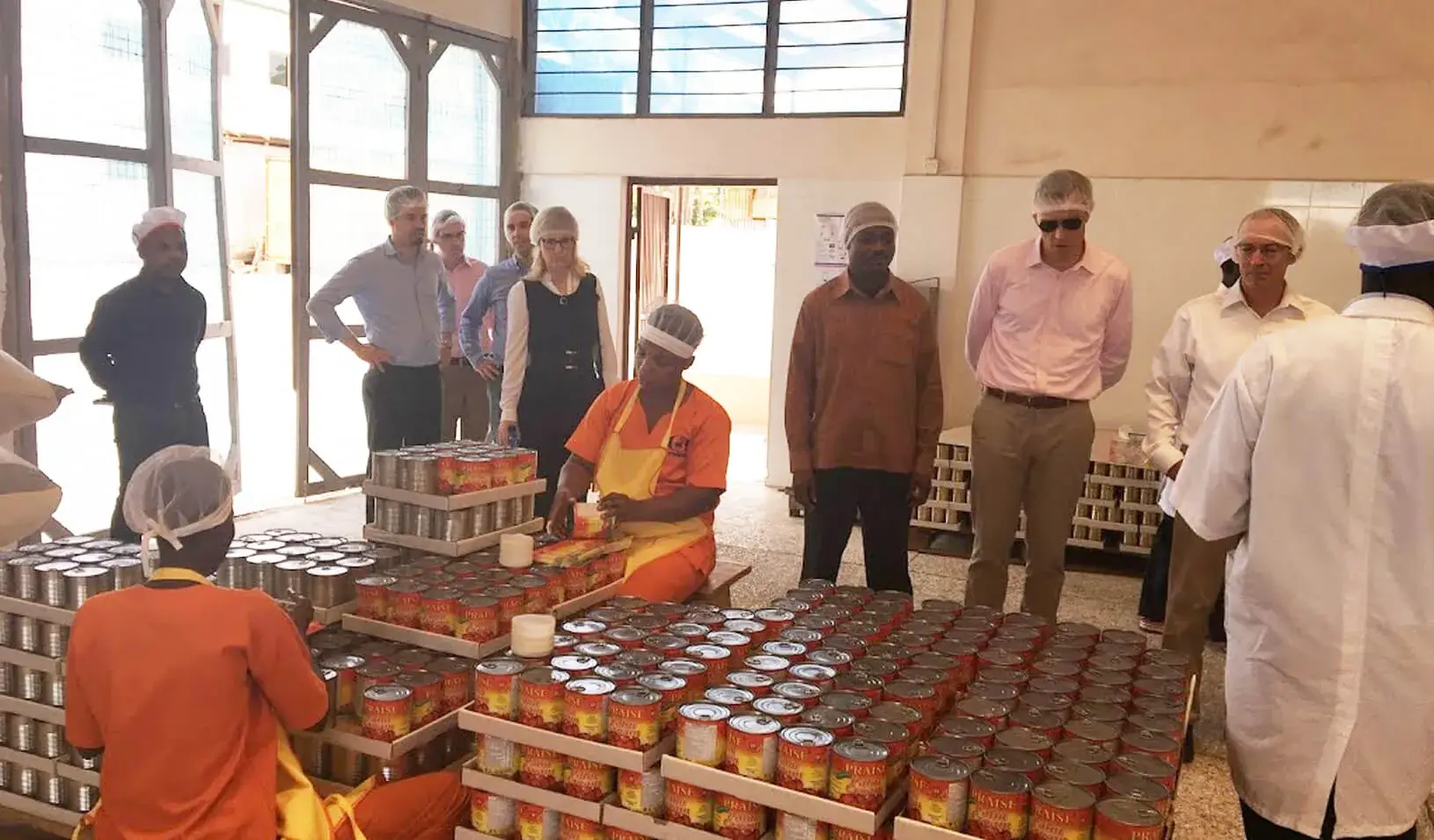
Stanford GSB faculty met Aliko Dangote, CEO of Dangote Group, West Africa’s largest conglomerate. He also set up a $1.25 billion foundation focusing on nutrition, health, and education. | Liz Walker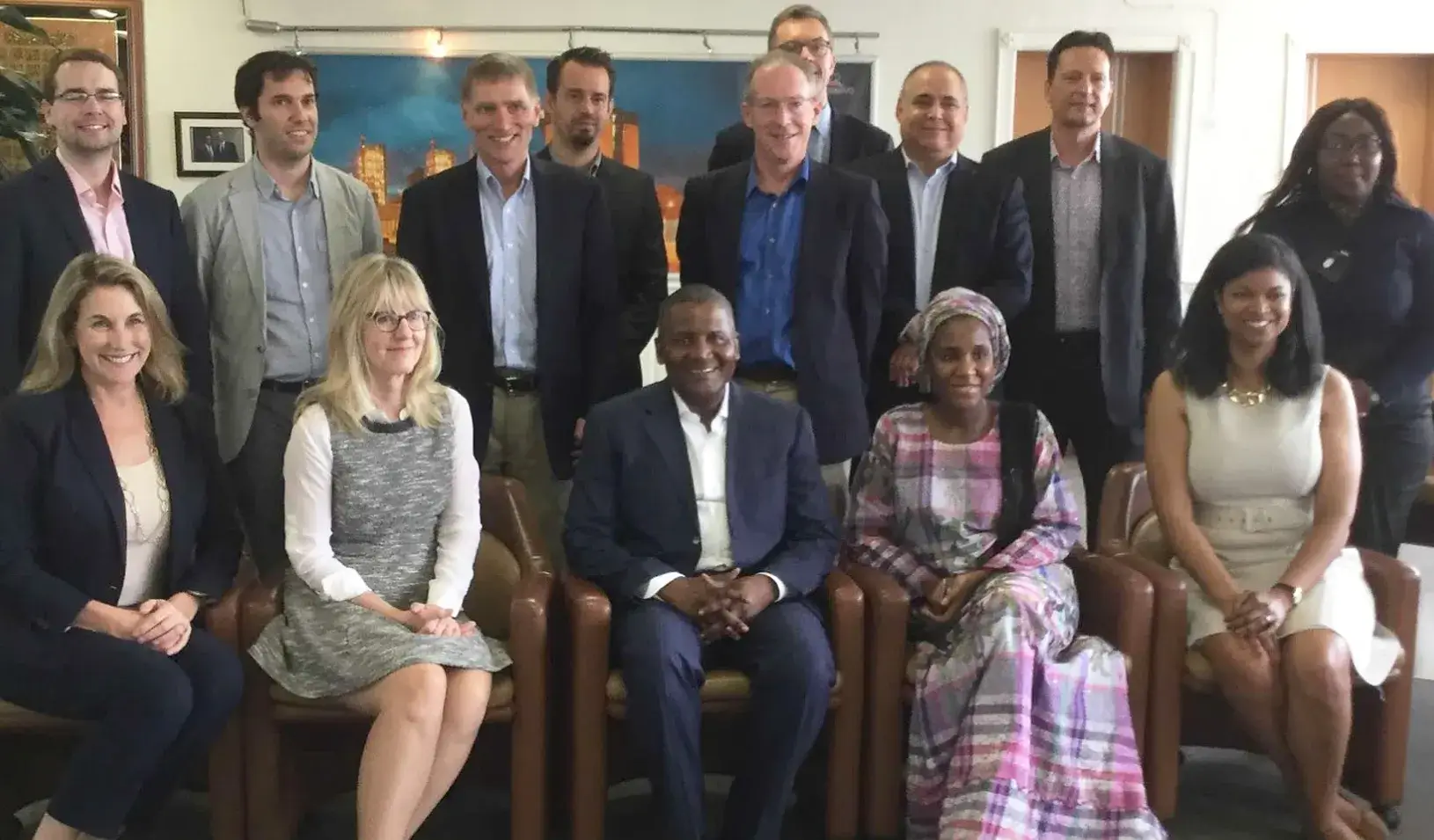
Tayo Oviosu, MBA ’05, the founder and CEO of financial services company Paga, led faculty members through a market in Lagos to see several of Paga’s agents. Paga helps people who don’t have bank accounts pay for goods via cellphone. | Liz Walker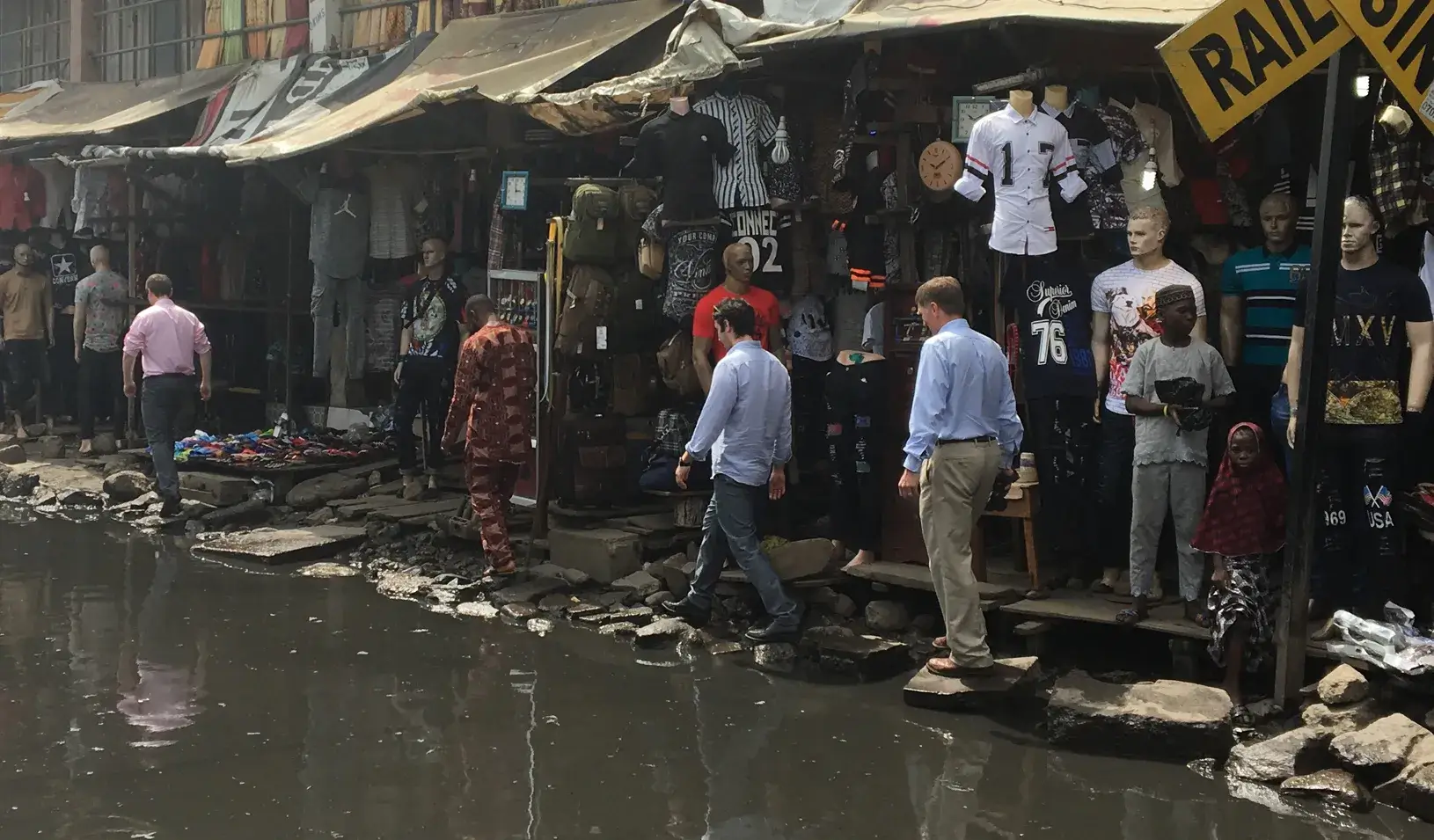
For media inquiries, visit the Newsroom.
Explore More
Erin Nixon Joins Stanford GSB as Assistant Dean of Admissions
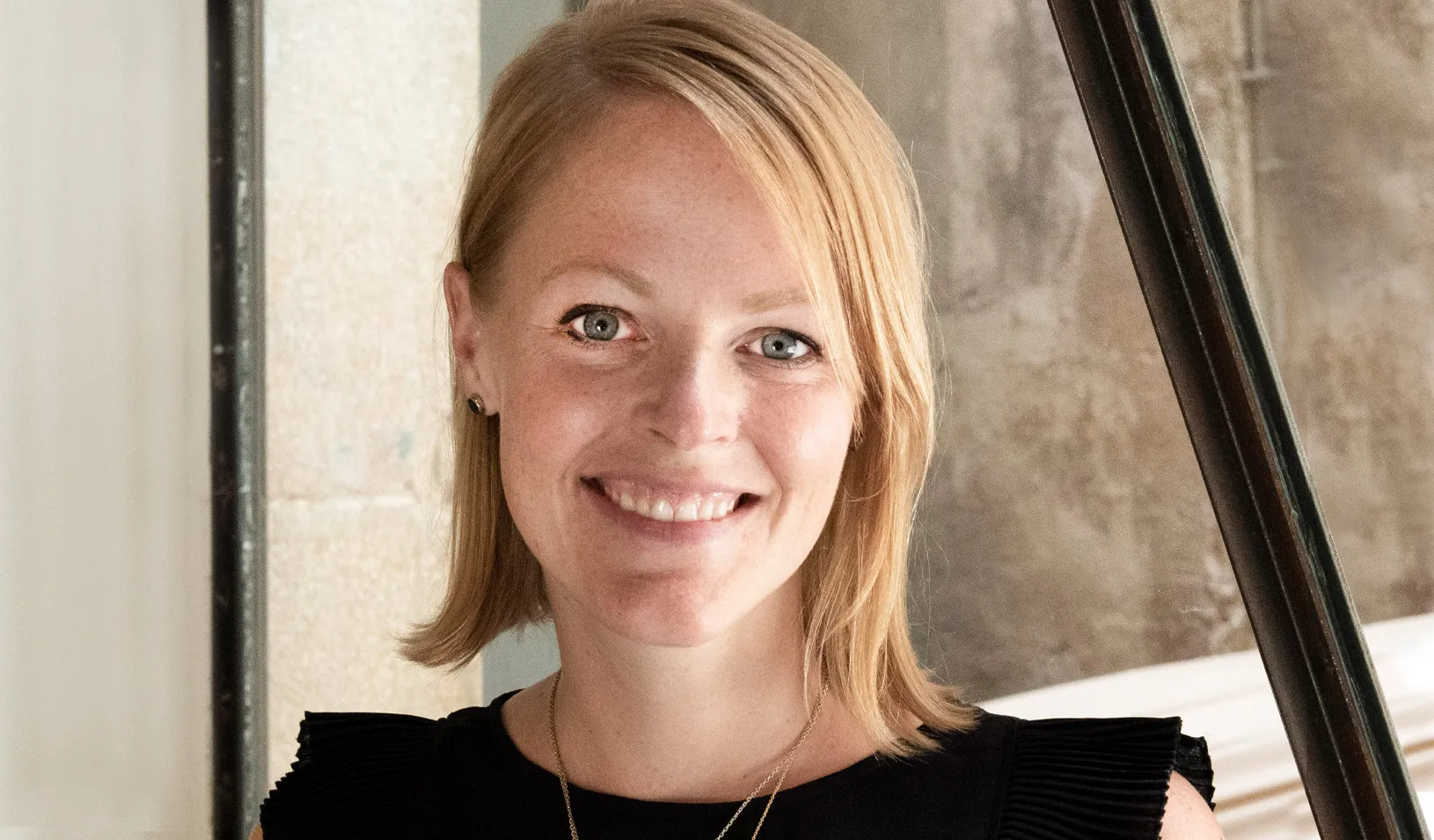
Nia Rose Froome, MBA ’23: Making Local, Fresh Food Available for All

New Research Fund Promotes Responsible Leadership for the Next Century
